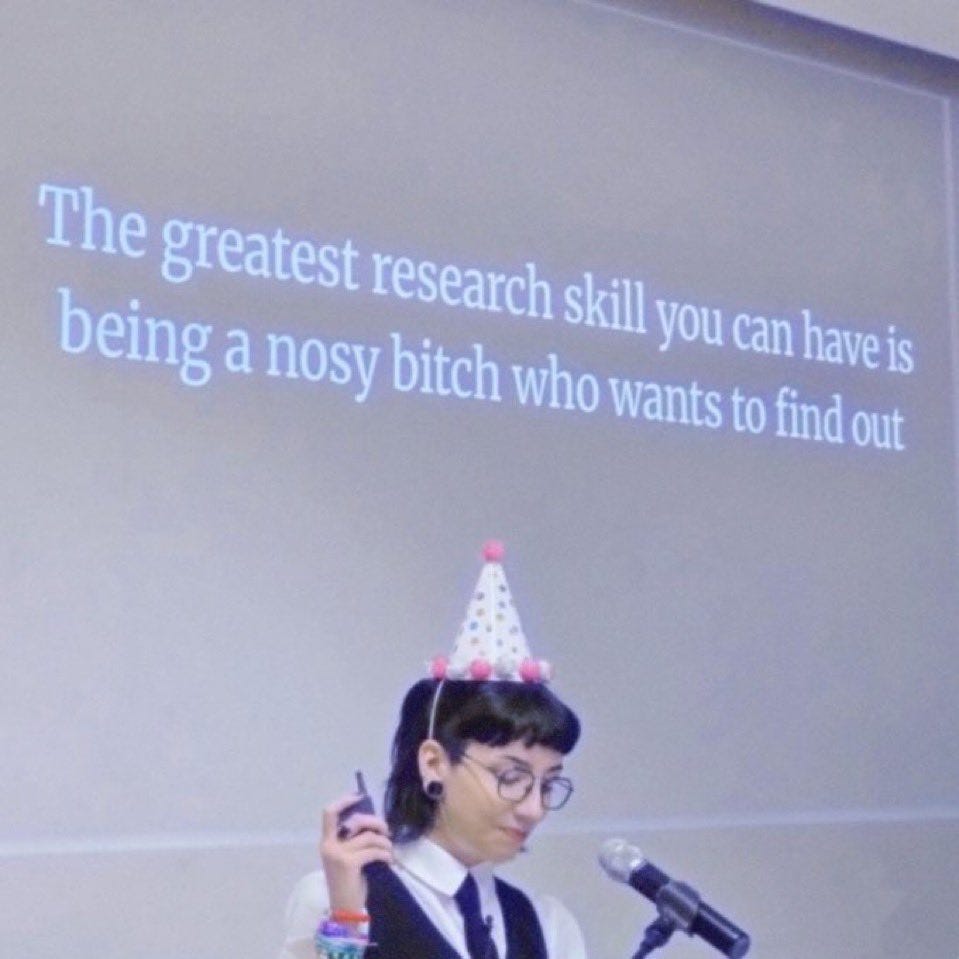Palinode to the Refusal to Die
One day, somewhere, you will be an editor. You will look upon language and consider it as something palatable, deathless. You will look upon language and wish to stop with language. You will look upon the moment of stillness and consider your placement within this origin mess of it all.
You will consider ghost-work. Chores and tidying of the spirits: sweeping longing out from under cabinets, spraying all-purpose cleaner on the tonal bloodstains between argument and cry. You will ask the mirror for clarity and its language will spill forth in mist and fog. You will pursue, doggedly, closure, as a ghost is want to do. You will shape metaphor with intangible digits and spinning them like studio-clay you will find endings toppling over each other in an endless helix of improvement and destruction.
You will forget yourself time and time again because in order to unmake yourself you must forget and in order to move on you must unmake.
I.
A palinode is an ancient form of self-erasure disguised as ethics.
Jacques Derrida, in Dissemination, teaches that every utterance is already haunted by its undoing. The slippage of meaning like a bare foot on the tiles of rot. The language that is heard is not always the self that is speaking. The palinode then becomes entropic representation, miasma of meaning.
You bear witness to another form of unmaking: I-diagnosis, I-matter-of-brevity.
The doctor chimes we are starting you on the low end of the possible prescriptive doses here, but this can go as high as twenty times the strength of where it’s at now with this tone that offers up something of a palate cleanser: take from this packet of gum the delight that we have bandages in ready supply for you, for ages, for an infinity of ages.
In “Heavy Breathing,” Essex Hemphill asks, “Do you think I could walk pleasantly? / And well-suited toward annihilation?”
II.
What is known to be absent.
I am diagnosed, now, with insufficiency. Another partial diagnosis, yet something. Something indicating lifelong. Something to indicate refusal. My pancreas, for whatever reasons, does not wish to work. I do not blame it. I also do not wish to work. I am writing this during a workday where I’ve received all number of slack messages and have responded to the effect of, “I’ll get to that shortly!” or, “Yes, thank you!” I believe I unnerve the engineers I speak with by the sheer volume of exclamation points I use. As though they’ve never texted with someone queer.
Étienne Gilson wrote, “There are times when a person must have the courage to provide the critics with an easy means of getting rid of him.” In this way I live quite courageously offering all of you the easy means by which you may get rid of me. Simply cook for me and sneak in the utter temptation of oils, butter, fats. I cannot break them down though I want to and it will send my body into this catastrophic dance-in-desire-of-rupture.
I do not want you to recognize yourself in me. I ask the doctor about her wedding plans as, last time we spoke, we had arrived at the conclusion that we would be planning weddings to be happening around the same time as each other. Hers are much simpler — she has finalized most things by renting a large boat for the festivity. We laugh together at how effective that would be. She, a practitioner of on-task thoughtwork, resumes poking at me. Offers a you’re not trying to go out and set a world record of bacon-eating, you just want to be able to eat normally again. But carefully does not promise normalcy, even with the enzymes I’ll be ingesting with every meal for the foreseeable future.
What a funny phrase the foreseeable future for being so common in our lexicon. I would wager most do not have the gift of foresight. And each day most lose access to the critical thinking skills necessary to consider what may come next. When I began therapy, one of the first missions of my therapist was acquiring for me my willingness to perceive my future — she could sense that I could see it, but that I refused it for some reason (depression). What they do not say is that foresight is a form of excess, is a fat on the bones of the present. Foresight is language. I do not want you to forgive language for this excess.
III.
Louise Glück writes, “Writing is not decoy against death. It is working within the presence of death.” I believe her.
What compounds me. Heather talks to me about how the more clearly you can detail an answer to “What is happiness?” the closer you are to it. I respond fairly quickly: happiness is living surrounded by books because I never want to feel like I’ve learned enough. Enfattening is typically represented arithmetically by addition. It is an additive property to resolve pounds, volume, density, and dimensionality of a figure.
Then all the in-betweens of fat: fattening the brain, fattening the spirit, fattening my already-too-large emotions; I think, must be multiplicative. To learn more is to create duplicate selves with separate-and-bridged taxonomies of being. To feel more is to create duplicate selves who are crying-considering-laughing-running. To believe more is to create duplicate voices all asking dissident questions simultaneously.
IV.
A palinode written in resistance to apologetic ideation of future selves and instead acknowledgment of the work of consideration, editing, retaining language and refining it.
You who wears the good pants to the reading, who thanks the crowd, who reads the collected texts, who thinks of legacy and heritage as spectra of colors, who dies in every sentence, who survives after every sentence.
Allow me to offer: some days you wake up at 5:30 to your fire alarms going off and continuing to go off every thirty minutes until finally your partner discovers you can simply turn off the power to the fire alarms until the building maintenance can come by the next day to replace the alarms. Some days you wake up at 8:30 next to the love of your life with two cats squeezed together cradled behind your knees and wonder how much ecstatic love can be jammed into each moment. Tender, ecstatic love.
Where are you now?






